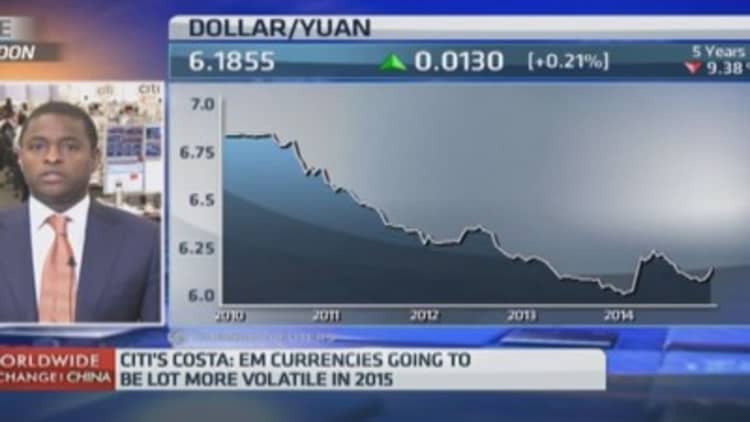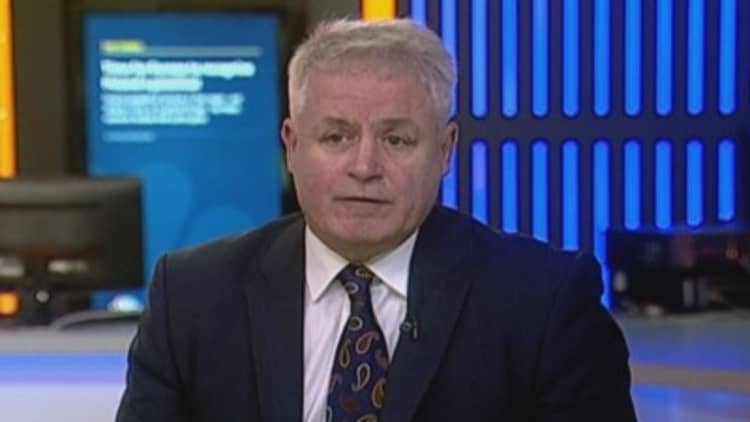
The chasm between the richest and poorest is at a 30-year high in developed countries, dragging down world economic growth, according to a new international report.
Worsening income inequality is estimated by the Organisation for Economic Co-operation and Development (OECD) to have knocked nearly 9 percentage points off growth in the U.K. between 1990 and 2010, and between 6 and 7 percentage points off growth in the U.S.
"This long-term trend increase in income inequality has curbed economic growth significantly," said the OECD, which is made up of 34 major economies, in a report out Tuesday.
Looking ahead, the organization forecast that over a 25 year period, inequality would reduce growth by an average of 0.35 percent points per year in OECD countries.
"The biggest factor for the impact of inequality on growth is the gap between lower income households and the rest of the population," said the OECD.
"These findings imply that policy must not (just) be about tackling poverty, it also needs to be about addressing lower incomes more generally."
Read MoreThe two main threats that are shaking global firms
Worst hit between 1990 and 2010 were Mexico and New Zealand, where the OECD estimated that rising inequality had knocked more than 10 percentage points off growth.
"On the other hand, greater equality prior to the crisis helped increase gross domestic product (GDP) per capita in Spain, France and Ireland," said the OECD.

Focus on families
Concern about income inequality is rising among policymakers, with Federal Reserve Chair Janet Yellen warning in October that it was near its highest level in a century in the U.S.
Globally, the issue was named as the biggest risk for 2015—trumping unemployment—in a survey by the World Economic Forum published last month.
Read MoreThis could be the most important trend for 2015
The OECD said its findings challenged the conservative view that there is a trade-off between promoting growth and addressing inequality.
"Policies that help to limit or reverse inequality may not only make societies less unfair, but also wealthier," it said.
The organization advocated increasing access to education and healthcare, as well as cash transfers to the some of the world's poorest, to tackle the problem.
"Redistribution efforts should focus on families with children and youth, as this is where key decisions on human capital investment are made and should promote skills development and learning across people's lives," the OECD said.
In October, Credit Suisse named Russia as the most economically unequal country in the world, followed by Turkey and Hong Kong. The U.S. also came in relatively high, in seventh place out of all countries.

Pay weakening in Latin America
Policymakers are also concerned about the income void between richer and poorer countries, particularly given the slowdown in major developing economies like Brazil, Russia and China.
Read MoreChina's 2015 outlook in three words
Global management consultancy Hay Group reported on Tuesday that real wage growth was recovering in Europe, but weakening in Latin America and parts of Eastern Europe. Workers in Brazil, Russia and Ukraine are seen experiencing real wage cuts of 0.4 percent, 0.7 percent and 3.9 percent respectively in 2015.
"This year's global forecast shows pay rises rising at a higher rate this year compared to last. However, this conceals stark variations from region to region and country to country," said Hay Group Consultant Ben Frost in the report.

